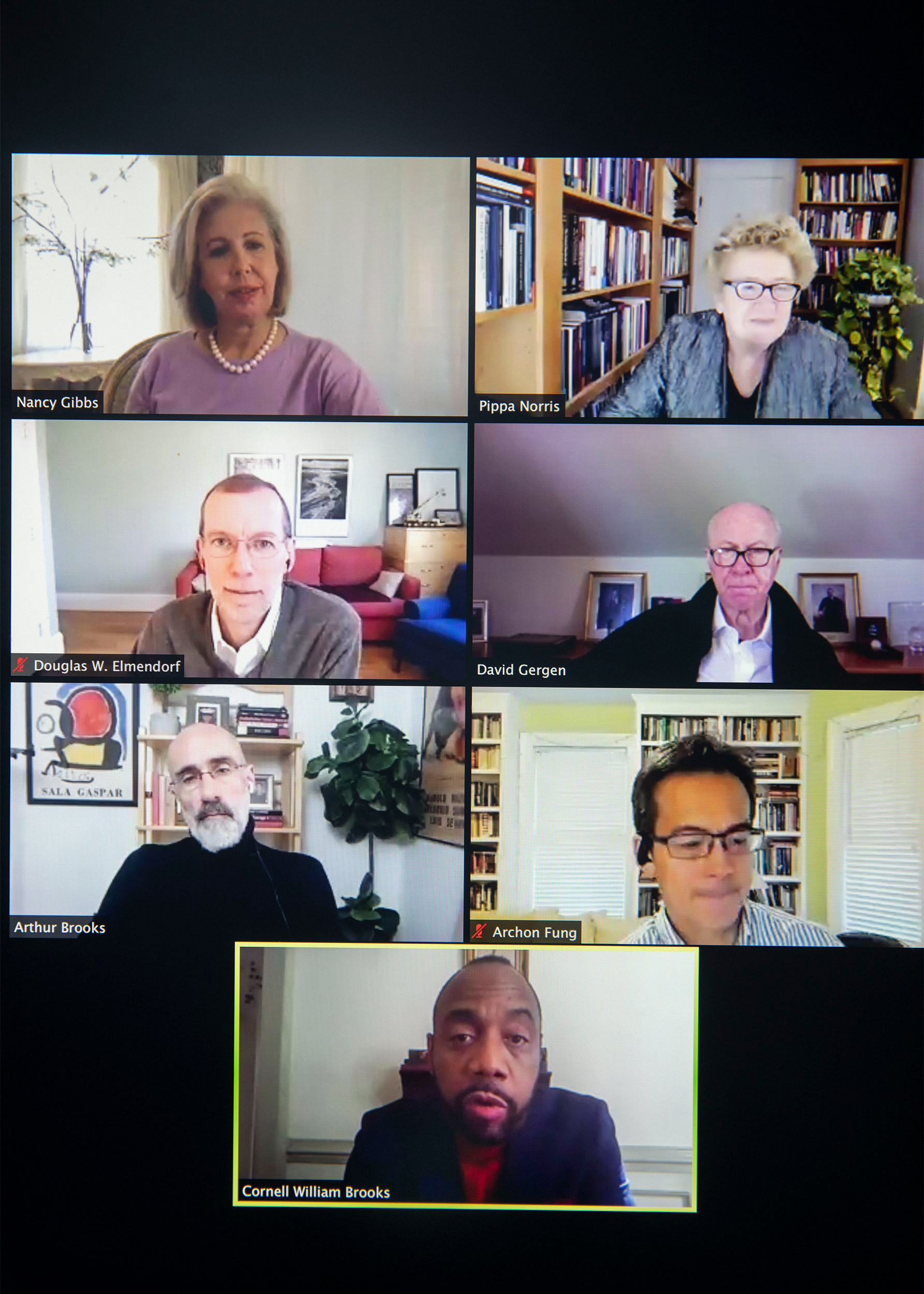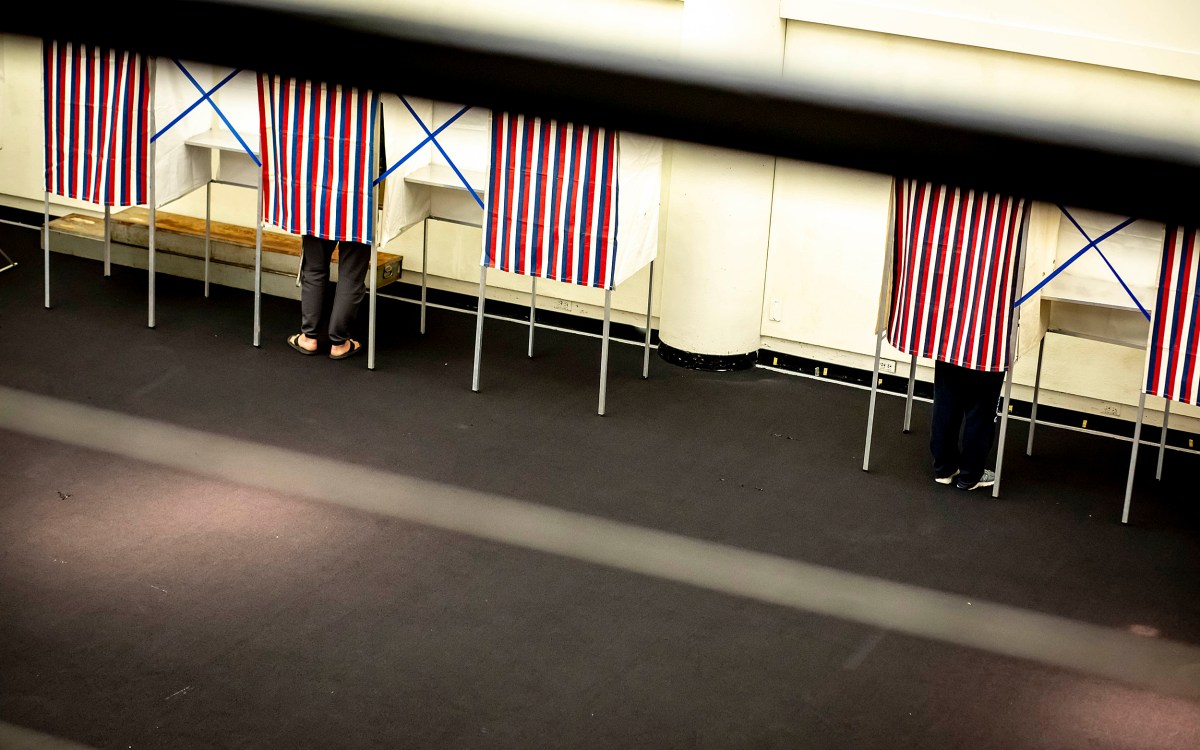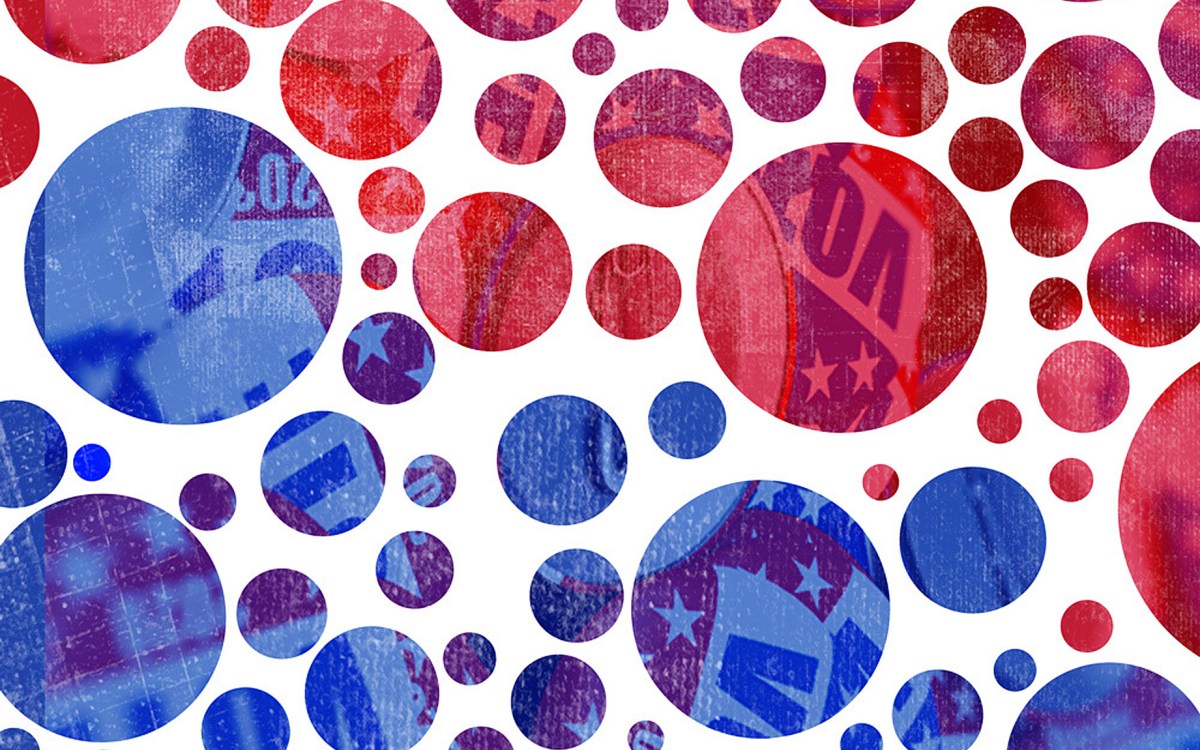An electorate that wanted to be heard
Massive turnout, orderly voting showed a system that actually works, panelists say

Nancy Gibbs (clockwise from upper left), Pippa Norris, David Gergen, Archon Fung, Cornell William Brooks, Arthur Brooks, and Douglas Elmendorf discussed the presidential election, which they lauded as orderly and successful.
Kris Snibbe/Harvard Staff Photographer
With votes still being counted in battleground states, a panel of experts took part in a webcast Wednesday afternoon to begin making sense of the seesawing presidential election, and the participants liked much of what they’d seen.
The panelists in the “U.S. Election Debrief,” organized by the Harvard Kennedy School (HKS), stressed there were silver linings in the election, such as massive turnout and orderly voting processes despite concerns over threats and possible violence.
David Gergen, Public Service Professor of Public Leadership at HKS and a onetime aide to presidents of both parties who has been critical of Washington’s increasing incivility, said that even as ballots were still being counted, there were a “number of reasons for hope.”
“We had this avalanche of voters who came out to vote,” said Gergen. “We haven’t seen this kind of turnout, and among the people who turned out so heavily were young people, people of color, and far more women. We can be thankful as well that instead of the mayhem that was predicted by some coming out of the immediate election, our streets are peaceful, and officials are counting ballots in a number of states, and it’s a very transparent process.”
For Cornell William Brooks, Hauser Professor of the Practice of Nonprofit Organizations and Professor of the Practice of Public Leadership and Social Justice, the high voter turnout, likely the highest in decades even as the country battles a pandemic, was a testament to the courage and commitment of American voters.
“At this moment, the country stands divided by class fissures and racial fault lines in the middle of a pandemic, and nevertheless nearly 100 million people cast ballots in the midst of 9 million coronavirus cases and 230,000 coronavirus fatalities” said Brooks. “This is a testament to the intestinal fortitude of people all across the country.”
Still, the panelists also spoke of their worries about how divided the nation remains, which poses a challenge for the next U.S. president, since he’ll have to deal with a large segment of the population who opposed him.
“The idea of ‘us versus them’ and populism in general divides people, not just America,” said Pippa Norris, Paul F. McGuire Lecturer in Comparative Politics at HKS. “People don’t try to listen to the issues; people find reasons to basically justify their support for their party or their candidate.”
Norris said the exit polls highlighted divergent views among voters in their political identities and expectations for a leader.
“If you thought the president was important to unite the country, you voted for Biden, and if you thought it was important to have a strong leader, you voted for Trump,” said Norris. “If you thought that COVID was important, you voted for Biden, and if you thought that rebuilding the economy was important, you voted for Trump. We’ve got two different visions, and it’s very difficult for any leader or any organization to move forward.”
The panelists also criticized the Electoral College, which awards all of a state’s support to the winner of a majority of its votes, as an anachronistic institution that “stands in the way of the popular vote.” Some panelists called for its dissolution.
The panelists also expressed surprise and shock at the failure of pollsters, some of whom had been forecasting a “blue wave” and an easy victory for the Democratic Party instead of the close presidential race that played out. There were similar polling discrepancies in 2016. But for Archon Fung, Winthrop Laflin McCormack Professor of Citizenship and Self-Government, there was a bigger surprise.
“Some people in blue precincts were holding in their heads the idea that the pandemic or the racial reckoning would have woken up enough people to ‘come to their senses’ and reject Trumpism, and we’d return to some sort of normal,” said Fung. “The surprise is that a lot of America is not the America that at least those people in blue precincts thought it was.”
Hosted by HKS Dean Douglas Elmendorf, Don K. Price Professor of Public Policy at the Kennedy School, and moderated by Nancy Gibbs, Lombard Director of the Shorenstein Center and Visiting Edward R. Murrow Professor of the Practice of Press, Politics and Public Policy, the panel drew more than 500 viewers.







